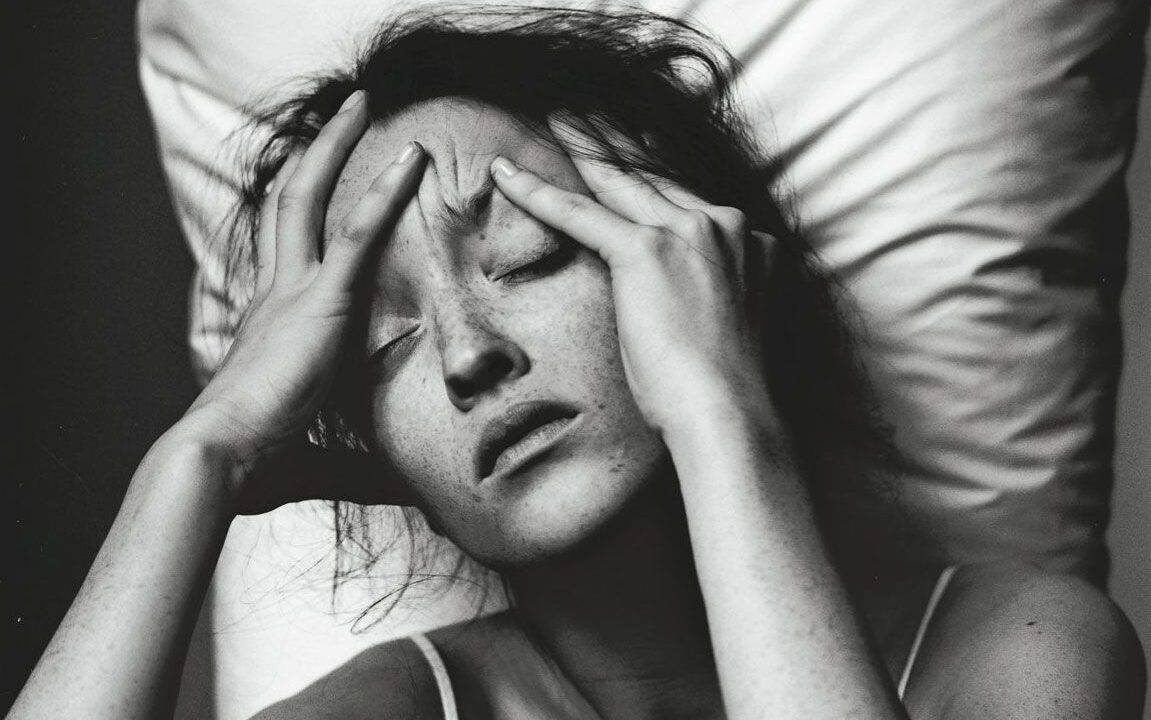You might not be aware of it, but the way you sleep could reveal your hidden emotions and anxieties. Recent studies suggest that certain “high stress positions” during sleep reflect inner tension and worry. In fact, some experts believe our sleeping posture acts as a silent reflection of our emotional state.
How does stress affect our sleep?
Each night, our bodies communicate in ways we often overlook. Stress acts like an invisible conductor, disrupting our sleep cycles, influencing our positions, and changing how we rest. When we’re stressed, the body activates its stress response system, releasing hormones like cortisol and adrenaline that keep muscles tense and delay sleep. This leads to trouble falling asleep, restless nights, and constantly shifting positions to ease nervous energy. Mentally, our thoughts race, replaying worries and scenarios, which can fuel insomnia.
A March 2024 study found that psychological stress directly leads to poorer sleep quality, often due to overthinking and social anxiety. It also noted that the deep, restorative stages of sleep are frequently shortened.
Physically, stress makes us curl up: knees bent, arms tight, jaw clenched. These unconscious “high stress positions” mirror inner discomfort. By morning, you may wake up with aches, neck pain, and fatigue. This creates a cycle: stress causes tense sleeping postures, which increase physical tension, leading to more stress and poorer sleep.
Common high stress sleep positions
Each stressed sleep posture hints at suppressed emotions, revealing a mind under pressure. Here are the most typical ones:
– Fetal position: Curling up with knees to the chest and a rounded back suggests a need for security and protection from underlying anxiety.
– Arms crossed over the chest: This defensive pose is often adopted by those seeking control, even while asleep.
– Flat on stomach: Lying face down with the neck stretched can shorten breathing and prevent full relaxation by misaligning the body.
– Rigid back: Sleeping straight with arms at the sides or crossed is common among perfectionists or highly stressed individuals who struggle to unwind.
– Clinging: Wrapping arms or legs around a pillow or partner shows an instinctive need for comfort and reassurance.
– Tight-fisted: Clenched fists indicate alertness and a readiness to defend, reflecting unexpressed tension or a desire for control.
How to ease stress for better sleep
To reduce stress and adopt more relaxed sleep positions, establish a calming bedtime routine. Turn off screens, practice deep breathing, relax your jaw and shoulders, and choose an open posture with limbs relaxed and back aligned to let energy flow. Activities like yoga nidra, meditation, or a warm bath can soothe your nerves and prepare your body and mind for rest. Also, managing stress healthily during the day makes it easier to let go at night. Ultimately, make sleep a peaceful refuge, and your body won’t need to express stress through your posture.To rest is to defend itself.
Is there a beauty or wellness trend you’re curious about? Let us know! Email Vogue’s senior beauty and wellness editor at beauty@vogue.com.
Frequently Asked Questions
Of course Here is a helpful and clear list of FAQs about sleep positions and what they might reveal
FAQs Your Sleep Position What It Says About You
Beginner Definition Questions
1 What are the most common sleep positions
The most common positions are the Fetal position the Log the Yearner the Soldier the Starfish and the Freefaller
2 What does my sleep position actually say about me
While not a hard science your dominant sleep position is often linked to your waking personality For example side sleepers are often seen as cooperative while back sleepers can be more confident and quiet
3 Is it bad that I change positions all night
Not at all Its very normal and even healthy to shift positions throughout the night This prevents stiffness and promotes circulation Your dominant position is usually the one you fall asleep in or find yourself in most often
Personality Psychology Questions
4 I sleep in the Fetal position What does that mean
People who sleep in a tight Fetal curl are often described as having a tough exterior but a sensitive and warm heart They may be shy upon first meeting but open up and become very friendly
5 What does sleeping on my back say about my personality
Back sleepers are often perceived as confident quiet and selfassured They may set high standards for themselves and others and enjoy being the center of attention
6 Im a stomach sleeper Am I really more outgoing
Often yes Stomach sleepers are frequently described as outgoing brash and sociable They can be impulsive and dont like criticism or extreme situations
7 I sleep on my side Whats the personality type for that
Side sleeping is the most common position and is generally linked to being easygoing cooperative and trusting The specific style matters
Log Social and easygoing sometimes gullible
